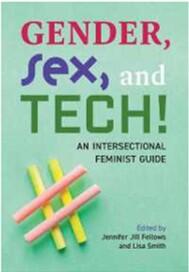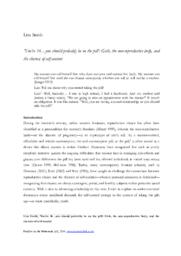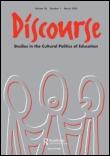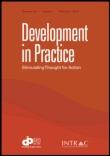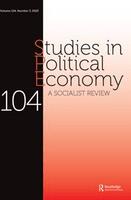Sociology
Related Works
Content type
Digital Document
Abstract
In this timely collection, gender, sex, and technology are explored through an intersectional and interdisciplinary lens. Gender, Sex, and Tech! provides insight into the ways that technology affects, and is affected by, cultural perceptions of gender and sex. Through an examination of a range of past and present issues, the text highlights our relationships to technology and illustrates how gendered relations are shaped and transformed through social and technological innovations.
Contributors bring to the fore feminist, decolonizing, and anti-racist methods to examine our everyday uses of technology, from the mundane to the surreal to the playful to the devastating. Original research and scholarship is skillfully grounded in real-world scenarios like revenge pornography, gender bias in artificial intelligence, menstrual tracking, online dating, and the COVID-19 pandemic, inviting students to take a closer look at technological transformations and their impact on gendered lived experience and to consider how the benefits of technology are inequitably shared within society.
Centring Canadian scholars and Canadian perspectives without losing sight of the broader global connection, Gender, Sex, and Tech! is bursting with timely and of-the-moment content, making this collection a must-read for courses focused on gender and technology.
Origin Information
Content type
Digital Document
Abstract
This thesis puts forth an ethnographic, contextual social constructionist account of the non-mainstream body manipulations practiced at the annual Body & Soul body modification event in Western Canada. The radical practices at this event include sewing limes and other items to one’s body, flesh hook pulling, and/or receiving “third eye” piercings and cheek skewers; thus, it constitutes an example of extreme deviance subject to negative reactions from outsiders. This research assumes that meaning is discursively and symbolically constituted by people via an active process of claimsmaking wherein competition for definitional control of reality ensues. From a qualitative stance, data were derived from a combination of participant observation fieldwork at Body & Soul and subsequent in-depth interviews with participants. The results demonstrate a trend in the (counter)claimsmaking activity of practitioners of this extreme form of body modification wherein paradoxically the nature of their deviance is reconstructed and aligned with conformist goals via discursive, corporal, and symbolic claims that simultaneously offer an implicit critique of mainstream Western culture. The results are interpreted as part of a discursive competition for definitional control of extreme body modification, strategy in the negotiation and management of a stigmatized identity, means of implicit social criticism, and an unconventional expression of conventional values.
Origin Information
Content type
Digital Document
Abstract
This dissertation presents the results of in-depth qualitative interviews with twenty-three formerly imprisoned men regarding their lived experience with prison conflict and the pain of incarceration. The results suggest that prison is a gendered ‘total institution’ (Goffman 1961). The pains that men experience in prison are uniquely gendered in that the deprivations imposed by incarceration– deprivation of autonomy, liberty, goods and services, heterosexual sex, and security (Sykes 1958) – in the reverse, define idealized masculinity as it is currently socially constructed: self-reliance, independence, toughness or invulnerability, material and economic success, and heterosexual prowess. From these shared deprivations emerges a gendered code of conduct that perpetuates a hierarchy among incarcerated men by constructing violent masculinity as a subcultural norm. The results suggest that the gender code in prison represents a set of rules that create opportunities for men to police each other’s gender performance and make claims to masculine statuses. Because status is inextricably tied to survival in this context, many men feel pressured to perform violent masculinities in prison despite privately subscribing to a non-violent sense of self-concept. The results suggest that violence is an expressive and instrumental resource for men in prison. A gender theory of prison violence, methodological findings, theoretical implications, ethical considerations and the short and long term aftermath of violent prison conflict are discussed.
Origin Information
Content type
Digital Document
Abstract
This thesis provides an account of Quaker service work for peace and social justice in the Canadian context, drawing from life history interviews gathered during attendance at Canadian Yearly Meeting and Canadian Friends Service Committee meetings. Interviews explored each individual's involvement in peace and social justice within the context of their Quaker spirituality. The analysis of the interviews emphasizes that religion is woven into each person's life over time and through experiences. Further, because Quaker spirituality emphasizes that each person has the capacity to commune with the Divine on an individual basis, the nature of religious experience will differ. This problematizes the notion that religiously-based service for peace and social justice derives from one type of religious experience. Instead, this research shows how, for Quakers, involvement in peace and social justice is intimately connected to personal experiences of the Divine, which are both fostered and tempered by their spiritual community.
Origin Information
Content type
Digital Document
Abstract
This thesis examines the place of the oral contraceptive pill within the context of girls as subjects in contemporary Canadian society. In many ways, discourses that associate pill use with choice, reproductive rights and increased control over the body for women are still prevalent today. Yet, there is an increased emphasis placed on autonomy, self-realization and empowerment, as well as the life-style benefits of the pill; further, young women, not women generally, are the target of campaigns that seek to encourage pill use. In attempting to examine the discourses that constitute young
women as subjects on the pill, I have brought together interviews with young women currently taking it and texts from the print news media, pharmaceutical advertising and public health communications. This thesis contributes to Foucault’s later work on ethics and care of the self and practices of freedom, which examines how government of the self occurs within the context of relationships with others. However, through engaging in a dialogue with post-structural feminist accounts of gender and the body, feminist studies of science and technology and recent work on emotional regulation and
emotion management, I consider the particular characteristics of subjects and the way that work on the self occurs on an ongoing basis in daily life. In this thesis I argue that young women are actively engaged in constituting ethical conduct, while at the same time the conduct of young women is shaped by various pill discourses. As such, in this thesis, I do not determine whether young women should or should not use the pill, nor do I establish the degree to which it enables or limits choice, reproductive rights and freedom. Instead, I am interested in how tensions surrounding the pill
produce ethical dilemmas that young women navigate on an ongoing basis.
Origin Information
Content type
Digital Document
Abstract
In this paper I explore the ways that the use of the pill and the ideal of the non-reproductive body intersect within the unique context of girls as subjects in contemporary Canadian society. Analysis draws on a series of twenty-seven qualitative interviews conducted in Montreal as part of my doctoral research with young Canadian women currently taking the pill. I found that women are expected to exercise choice, even though they have access to very few options. However, this disjuncture is even more marked when the subject in question is a young woman due to the intersection of youth, gender, and sexuality, which produces a more complicated practice of freedom because the boundaries of subjectivity are in flux. The pill is a manifestation of an ethic of rational preventative self-care. While we might embrace these technologies of freedom for how they provide increased control over the body, the material point is that in using technologies like the pill young women enter into complex social systems and relationships that paradoxically limit their autonomy.
Origin Information
Content type
Digital Document
Abstract
Au cours des dix dernières années, plusieurs rapports et débats publics ont exposé clairement la relation entre la laïcité et l’égalité entre les femmes et les hommes. Dans de nombreux cas, l’égalité hommes-femmes ne semble être envisagée que dans un contexte laïque. Les récents débats publics sur la religion et la diversité au Québec illustrent bien la manière dont laïcité et égalité des femmes sont mises en parallèle. Dans cet article, nous examinons comment le principe d’égalité hommes-femmes ressort de certains des mémoires présentés devant la Commission Bouchard-Taylor, du rapport des commissaires, ainsi que des discussions publiques ultérieures qui ont été menées sur le sujet. Nous explorons ensuite les modalités selon lesquelles l’égalité hommes-femmes a émergé comme thème central des mémoires présentés à l’Assemblée nationale à l’occasion du débat sur la Charte des valeurs québécoises. Notre analyse révèle que ces mémoires présentent les femmes, croyantes ou non, pratiquantes ou non (religious or non-religious) comme des êtres en mal de protection : c’est en effet le cas pour les femmes qui le sont, si l’on part du principe qu’elles n’ont aucune capacité à agir par soi-même (agency); c’est également celui des femmes qui ne le sont pas dans l’optique où elles ne devraient pas être exposées aux dogmes religieux. Dans notre perspective, ces deux postures s’inscrivent dans la lignée d’une attitude patriarcale qui nie la capacité des femmes à agir selon leur propre volonté. En outre, nous remettons en cause l’idée selon laquelle l’égalité des femmes relève de la laïcité, elle-même impliquée dans le patriarcat et emprisonnée dans la question de l’inégalité des femmes.
ENGLISH ABSTRACT
Over the past decade, several public reports and discussions have exposed the relationship between secularism and equality between women and men. In many instances, gender equality seems to be considered only in a secular context. Recent public debates on religion and diversity in Quebec illustrate how secularism and equality for women are paralleled. In this article we examine how the notion of gender equality is manifested in some of the briefs submitted before the Bouchard- Taylor Commission, in the report of the commissioners, and in subsequent public discussions conducted on the subject. We then explore the ways in which gender equality has emerged as the central theme of the briefs submitted to the National Assembly of Quebec on the occasion of the debate on the Quebec Charter of Values. Our analysis reveals that both religious and non-religious women are imagined to be in need of protection: religious women because they are assumed to have no agency and non-religious women because they should not be exposed to religious dogma. Both positions, we argue represent the continuation of a patriarchal approach that refutes a woman's ability to act of her own volition. Further, we challenge the idea that gender equality is the property and domain of laïcité, which is itself implicated in patriarchy and invested in the inequality of women. [ABSTRACT FROM AUTHOR]
Origin Information
Content type
Digital Document
Abstract
Nancy Fraser’s propositions regarding the nature of ‘boundary’ work carried out by experts within organizations suggests that individuals who work within bureaucratic structures are so constrained by the institutional context that they become detached, depoliticizing arbitrators of politicized claims. The purpose of the research reported in this article is to examine the assertion that workers in boundary roles necessarily engage only in work that depoliticizes the claims of oppositional social groups. By exploring the work of anti-harassment practi- tioners at Canadian universities, we uncover moments of both constraint and liberation in the practitioners’ work roles. Attending to the complexities of boundary role work illustrates that struggles over the definition of needs and claims made by marginalized social groups are not closed, nor are boundary workers completely co-opted by bureaucratic institutional prerogatives. Although variously constrained, interviews with practitioners reveal that their work can support counter-hegemonic challenges to the status quo. [ABSTRACT FROM AUTHOR]
Origin Information
Content type
Digital Document
Abstract
This practical note demonstrates the role that haricot beans play in assisting women to become food and nutrition secure, to generate income, and to have sustainable livelihoods that are resilient to shocks. Based on qualitative research among female and male beneficiaries of a pulse innovation project implemented in southern Ethiopia, the note provides a summary of the critical voices of farmers, and the role that haricot beans play in empowering women. It also outlines some of the challenges that the project faced in achieving its empowerment objectives. [ABSTRACT FROM AUTHOR]
Origin Information
Content type
Digital Document
Abstract
Since the late 1960s, the New Canadian Political Economy (NCPE) has played an important role in shaping the trajectory of the social sciences in Canada and informing the political goals and strategies of a range of progressive social movements. However, few studies have attempted to trace the history of the NCPE as a distinctive intellectual tradition or account for its place in consolidating a Left political milieu in Canada outside of Quebec. Exploring the NCPE as part of a wider Left formation, this article examines the role played by organic intellectuals in building this tradition. [ABSTRACT FROM AUTHOR]
Origin Information

